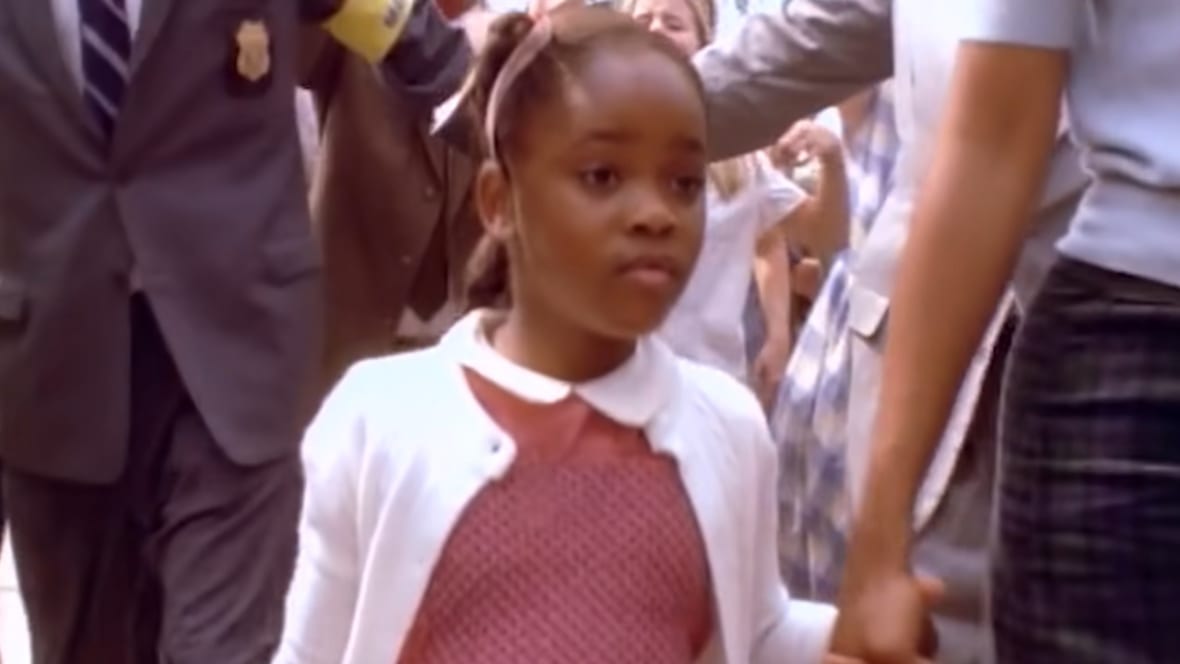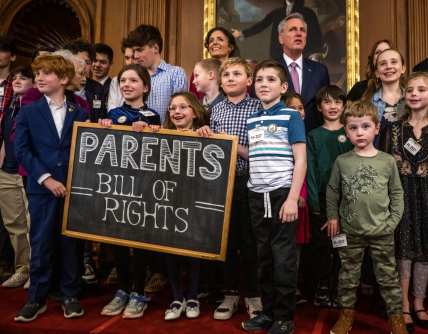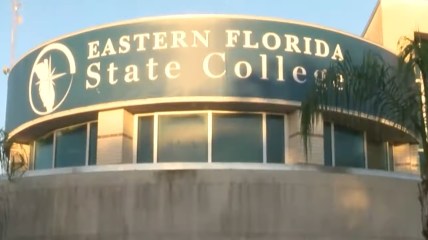Disney movie about Ruby Bridges banned from Florida school
The parent of a North Shore Elementary School second-grader opted not to let their child see the movie after the school sent permission slips. Days later, Emily Conklin filed a formal complaint.
Years after schools in Pinellas County, Florida, started including Disney’s “Ruby Bridges” in its Black History Month curriculum, a parent’s complaint has halted the showing on one campus pending a review.
The 1998 film tells the story of young Black girl Bridges, who was a 6-year-old pupil when she integrated a Louisiana school in 1960. The plan to desegregate New Orleans’ public schools was met with so much hate and protest, federal marshals were assigned to escort the child to and from school.
Earlier this month, according to The Tampa Bay Times, a parent of a second-grader at North Shore Elementary School in St. Petersburg opted not to let their child see the movie after the school sent permission slips. Days later, Emily Conklin filed a formal challenge with the Pinellas County school district. The scenes of white people threatening and hurling racial slurs at a little Black girl, she wrote, could teach students that white people hate Black people.

In response, county school officials banned the showing of the movie at North Shore until a review committee weighs in, though other district schools can still use it. That’s not fair, opponents of the ban say.
In an open letter to the community, a group representing the interests of Black public school students asked why one parent’s complaint should affect all of the school’s families, The Tampa Bay Times reported.
“Many from historically marginalized communities are asking whether this so-called integrated education system in Pinellas County can even serve the diverse community fairly and equitably,” wrote Ric Davis, president of the Concerned Organization for Quality Education for Black Students.
In an earlier case this year, after the district banned “The Bluest Eye,” by Toni Morrison, from its high schools, officials said they were following a state rule to “err on the side of caution” when someone raises a concern about classroom or library books, reported The Tampa Bay Times.
Lawmakers in Florida, as well as Gov. Ron DeSantis, have claimed to want facts about race presented honestly while also making clear they don’t want students to feel uncomfortable. But many in the state call the guidelines vague, and dozens of book challenges and bans have followed.
The district has not yet scheduled reviews of “Ruby Bridges” or “The Bluest Eye.” One state group watching the district’s actions, the Florida Freedom to Read Project, has offered support for getting the movie back into all schools, according to an area leader, parent Raegan Miller.
“It is distressing to me,” Miller said, according to the Times, “that one parent has, again, been able to have a resource removed from our schools when the vast majority of parents consented to their children seeing the film.”
While acknowledging the political climate that has educators second-guessing decisions on what’s allowed in the classroom, Davis said the historical accuracy of “Ruby Bridges” and other material will not change just because someone objects, The Times noted.
Conklin did not respond to the outlet’s requests for comment.
TheGrio is FREE on your TV via Apple TV, Amazon Fire, Roku and Android TV. Also, please download theGrio mobile apps today!


